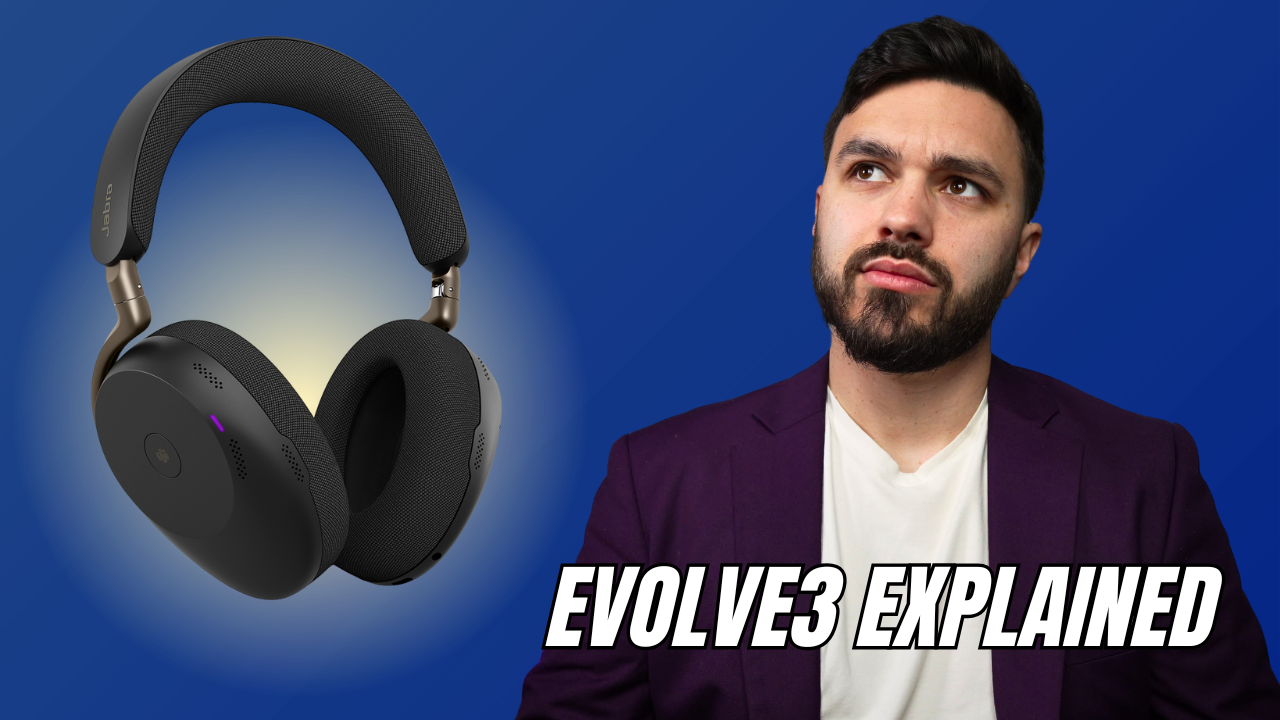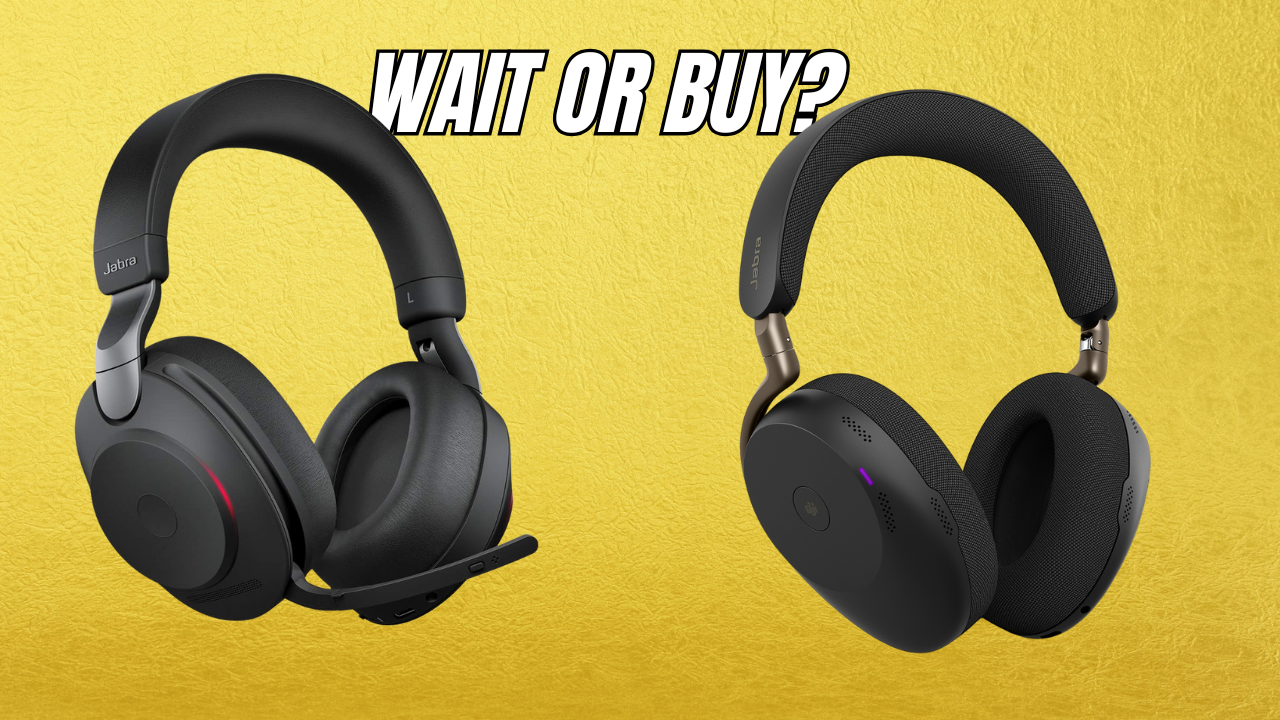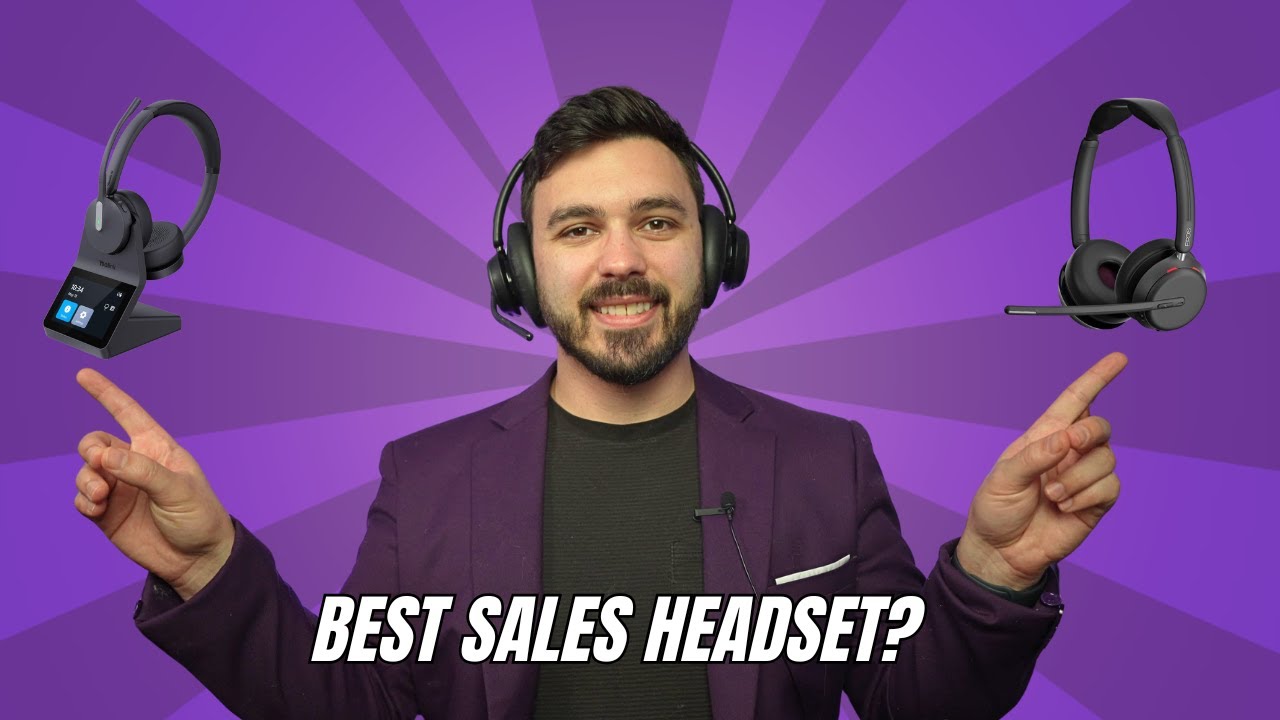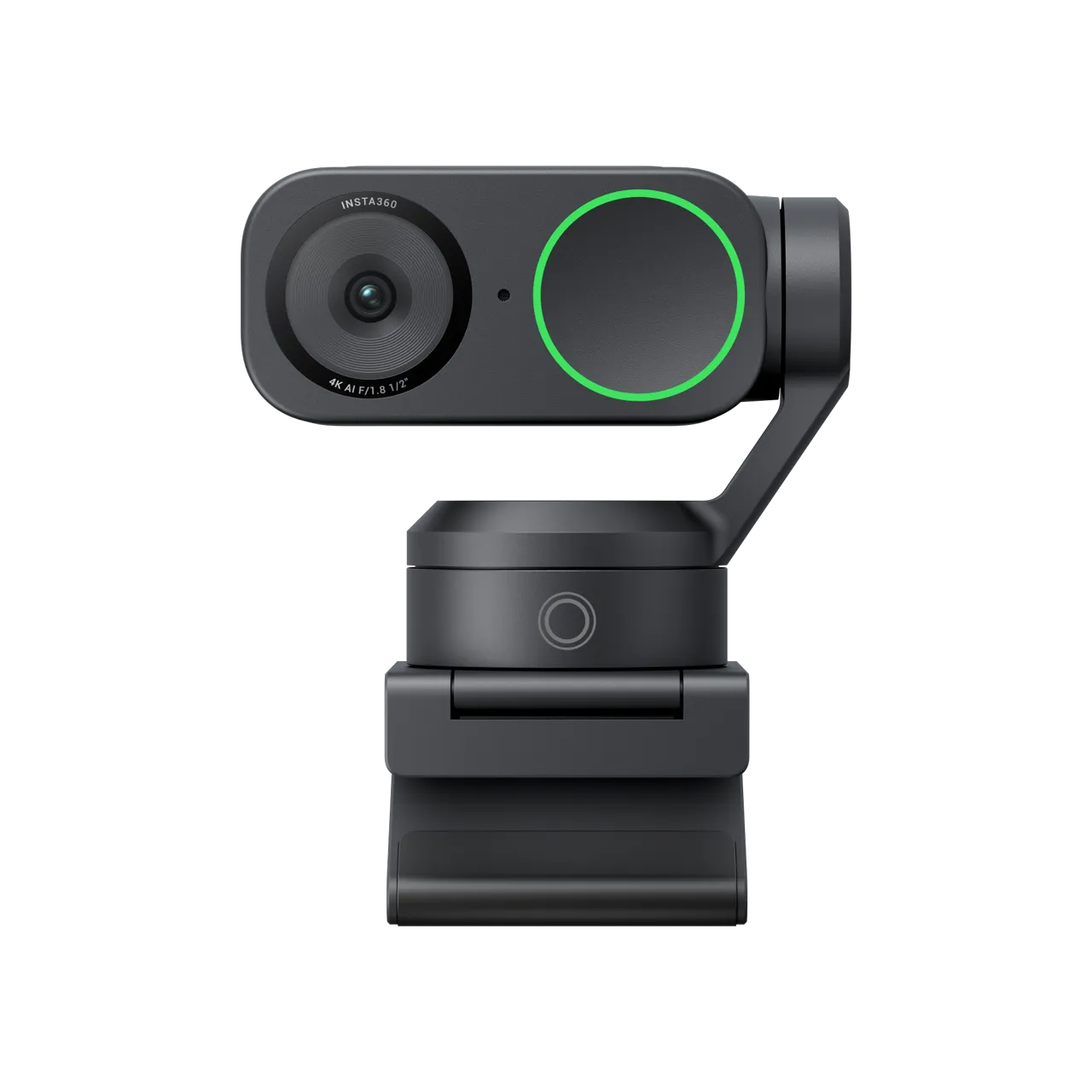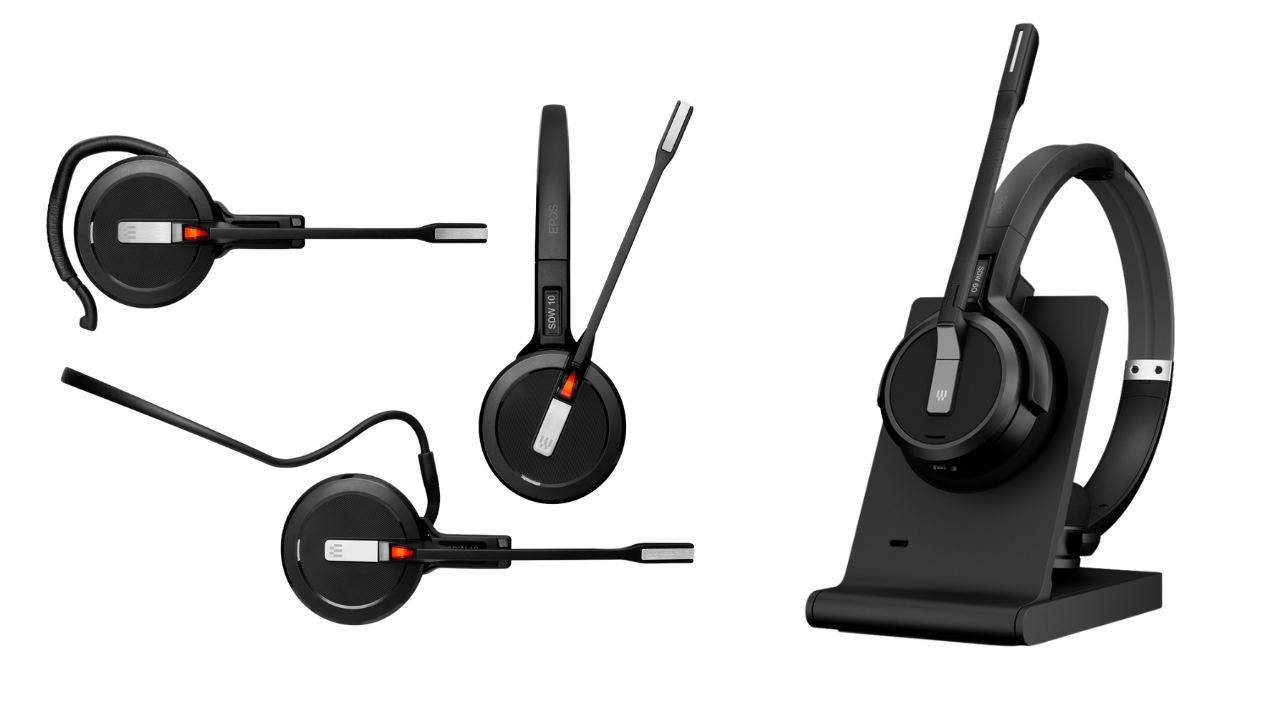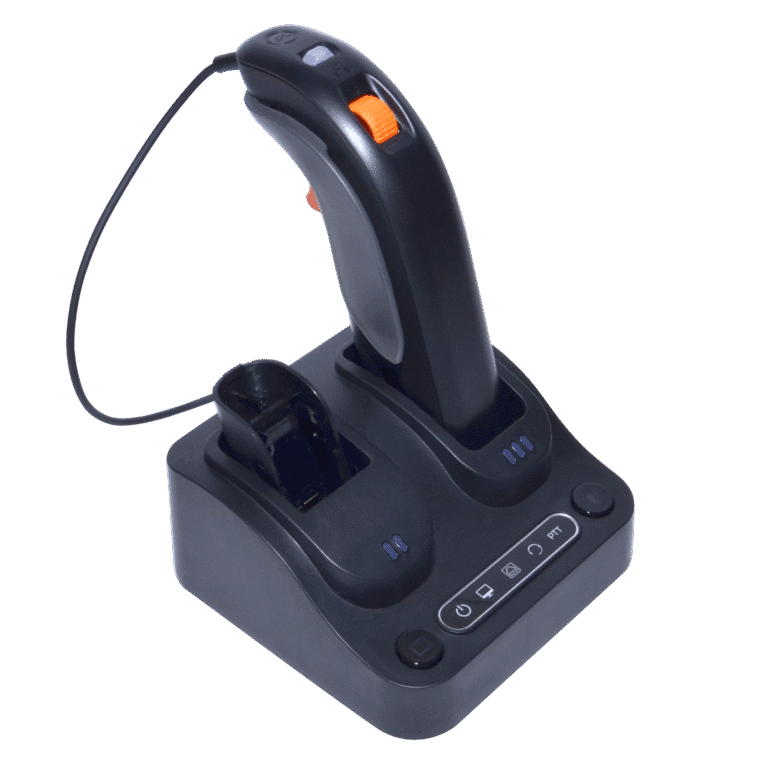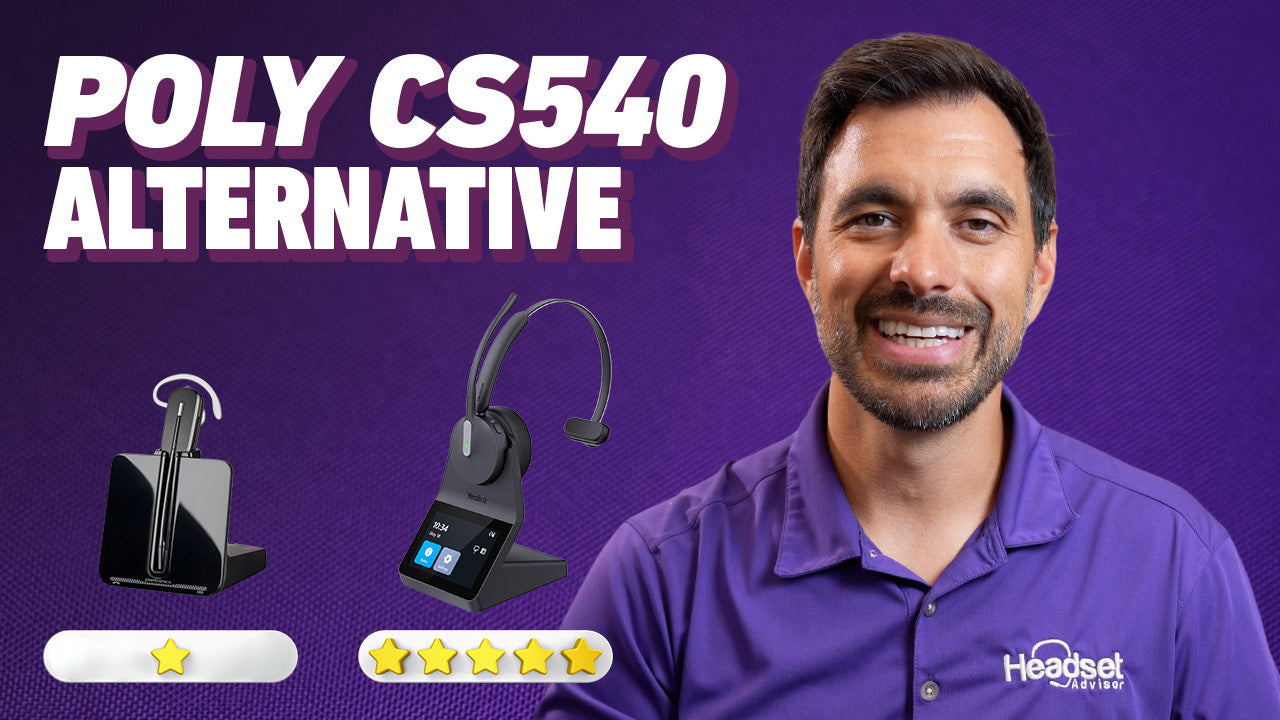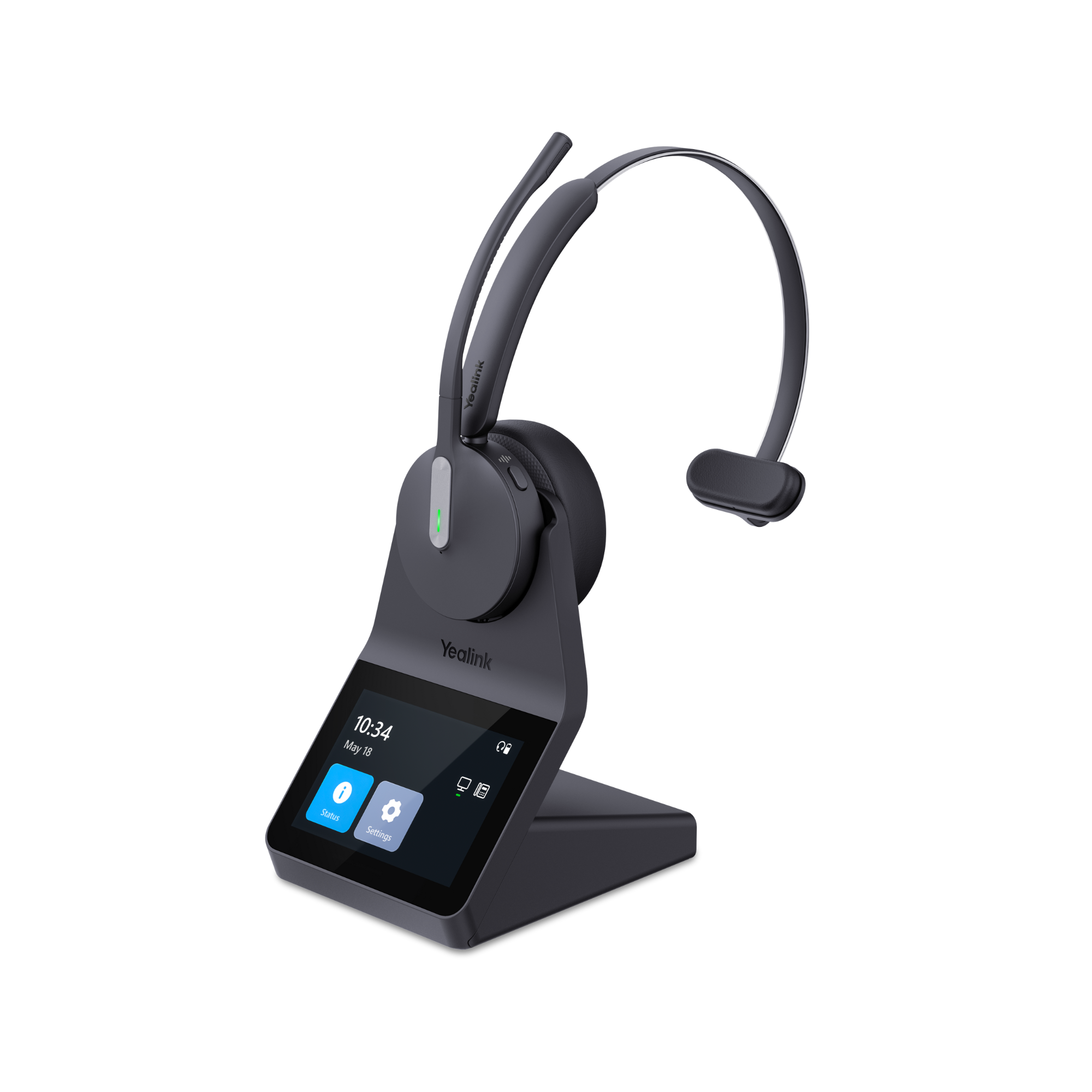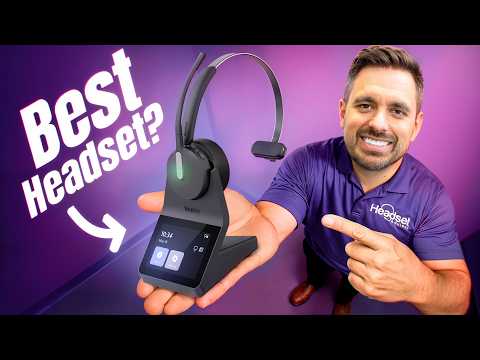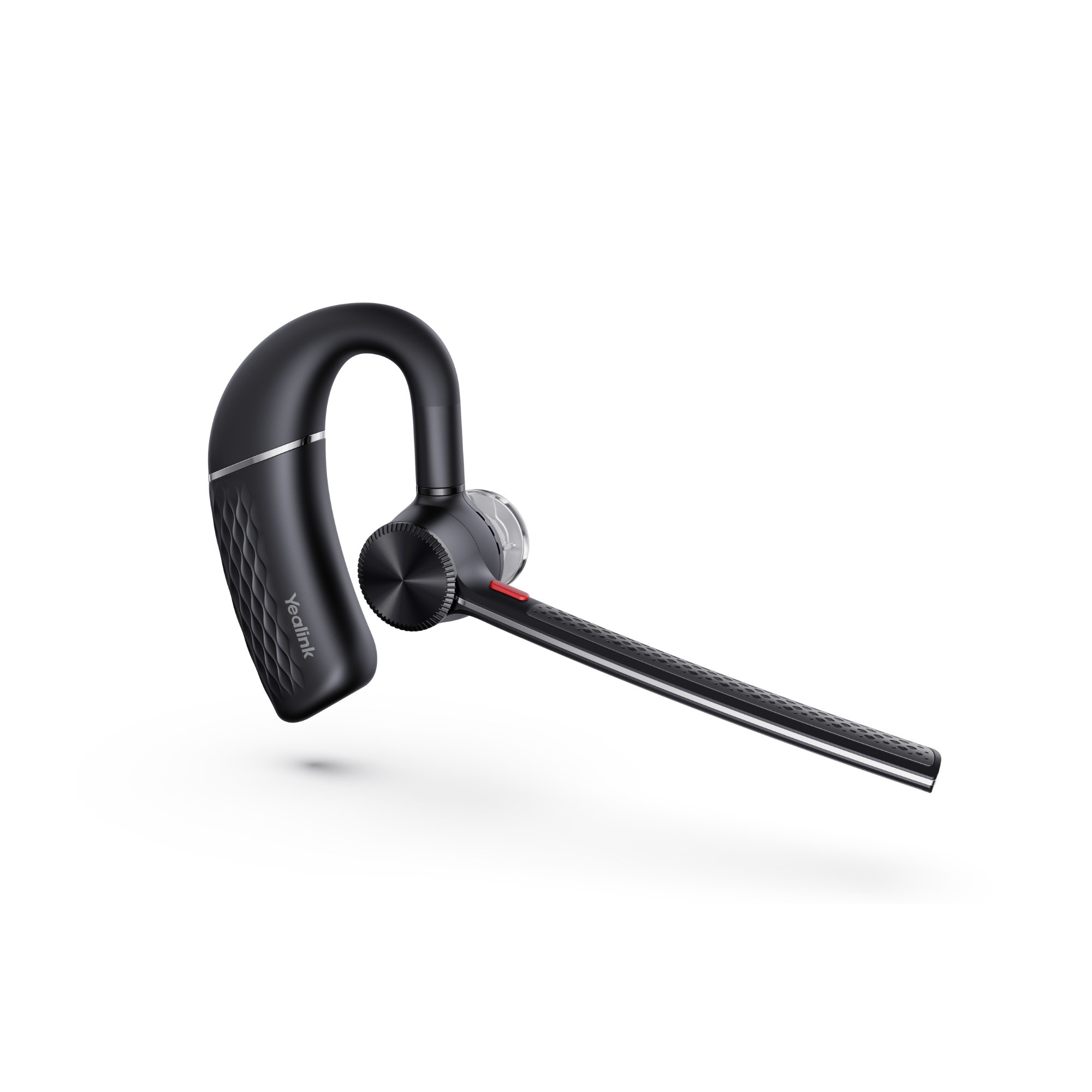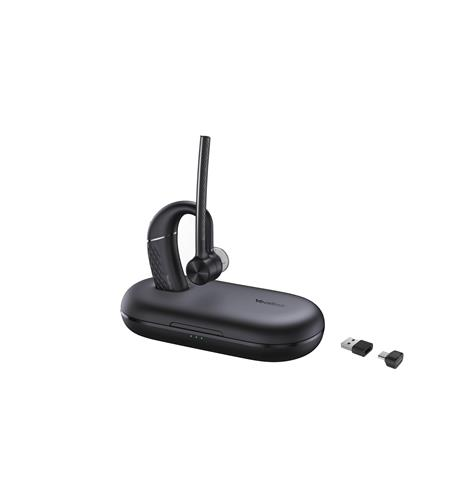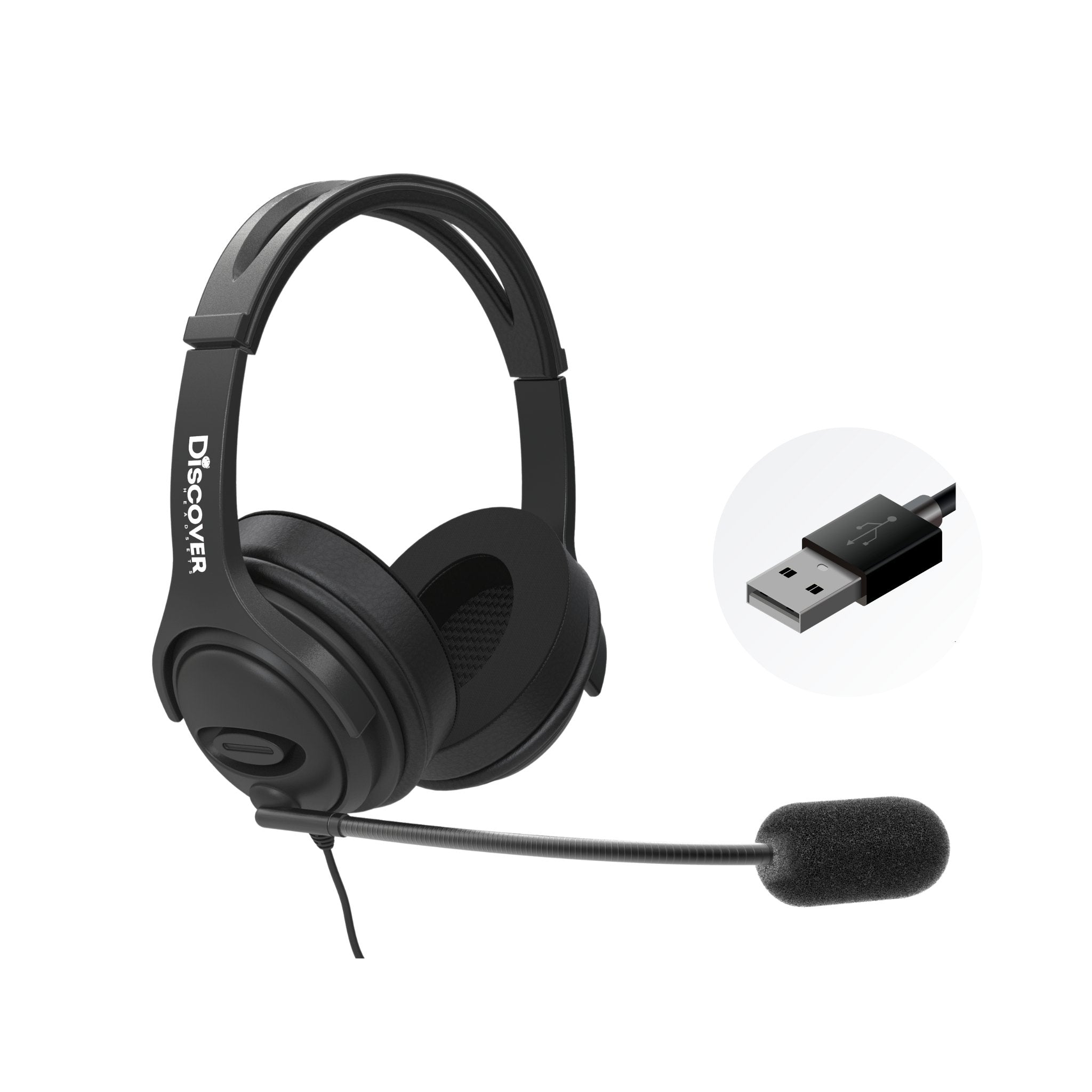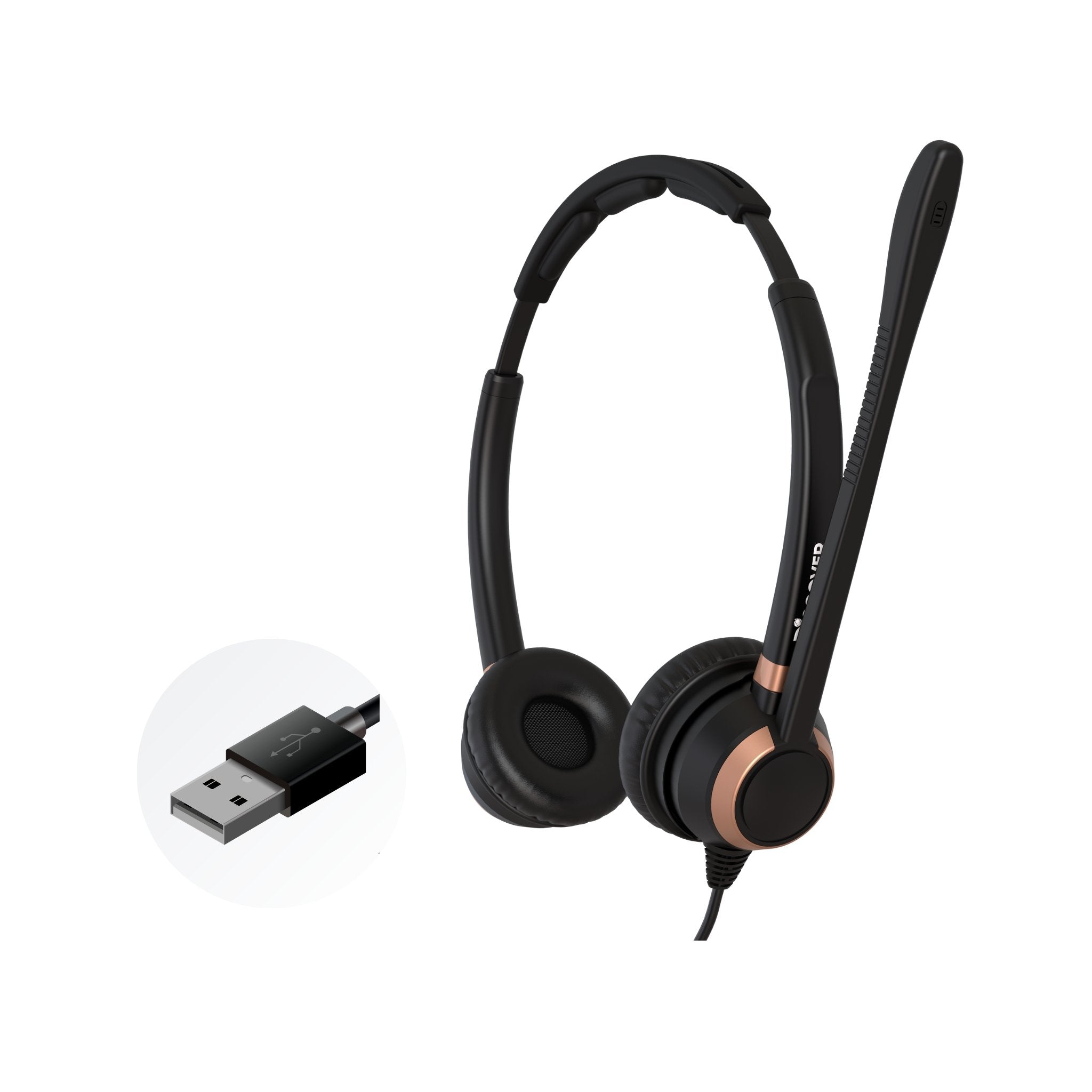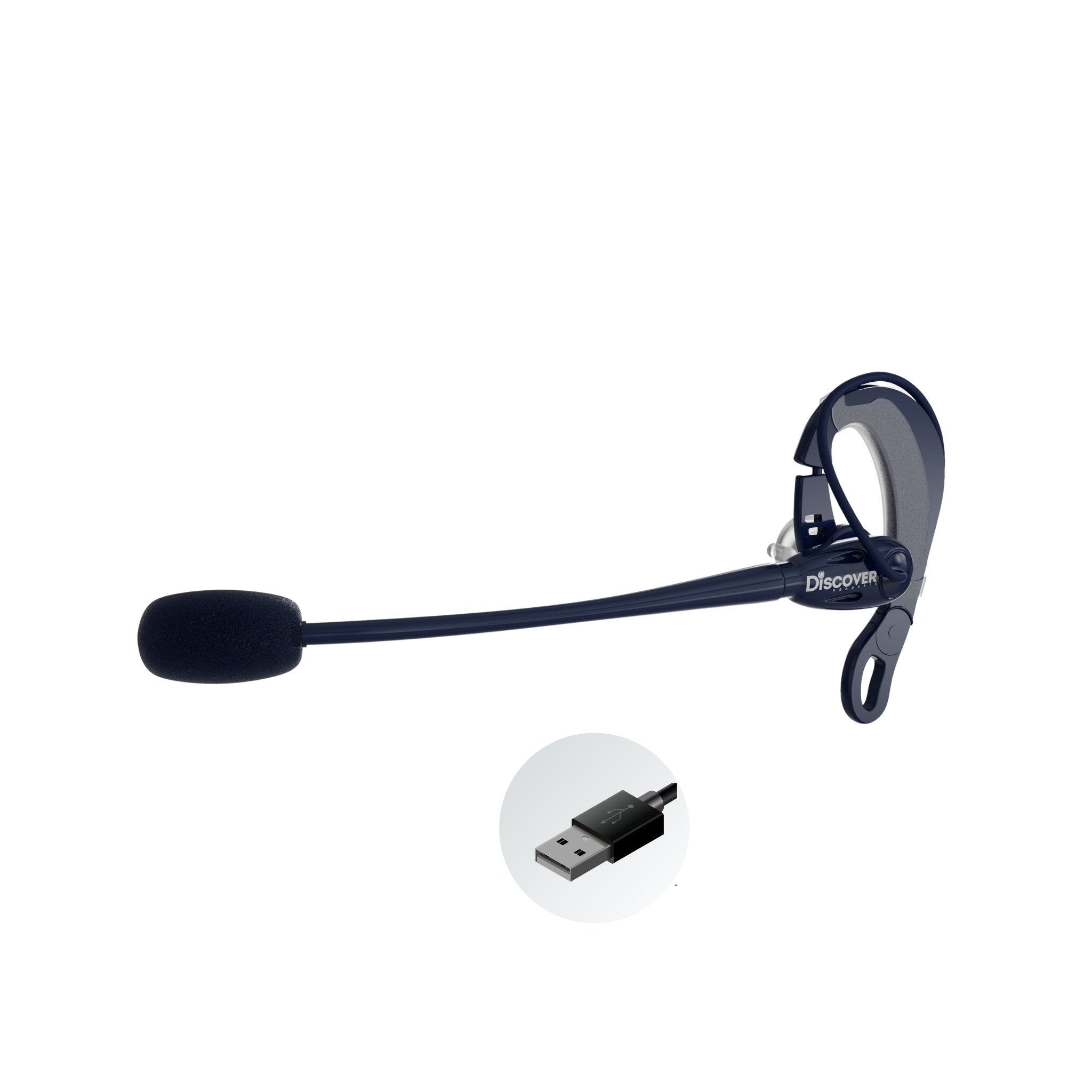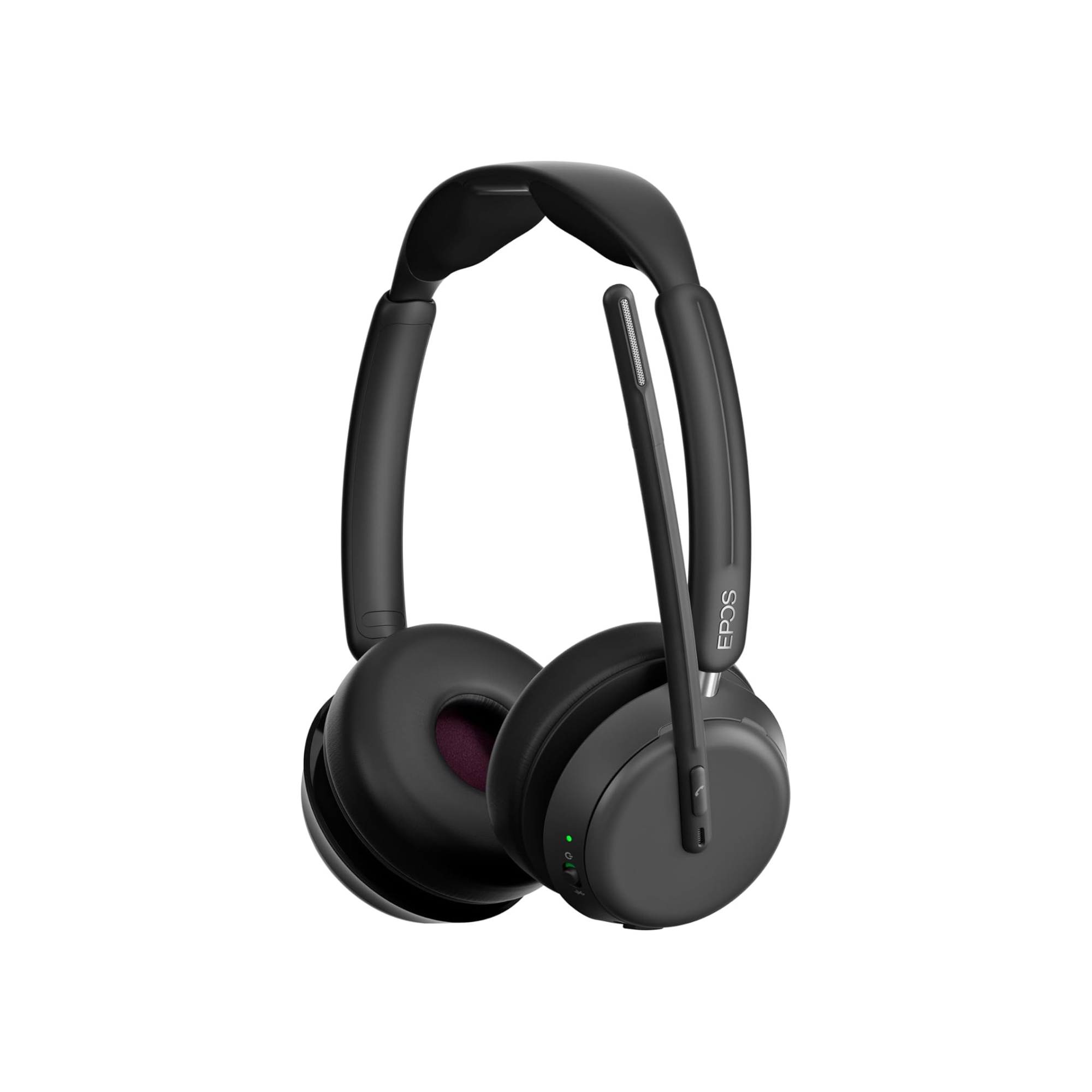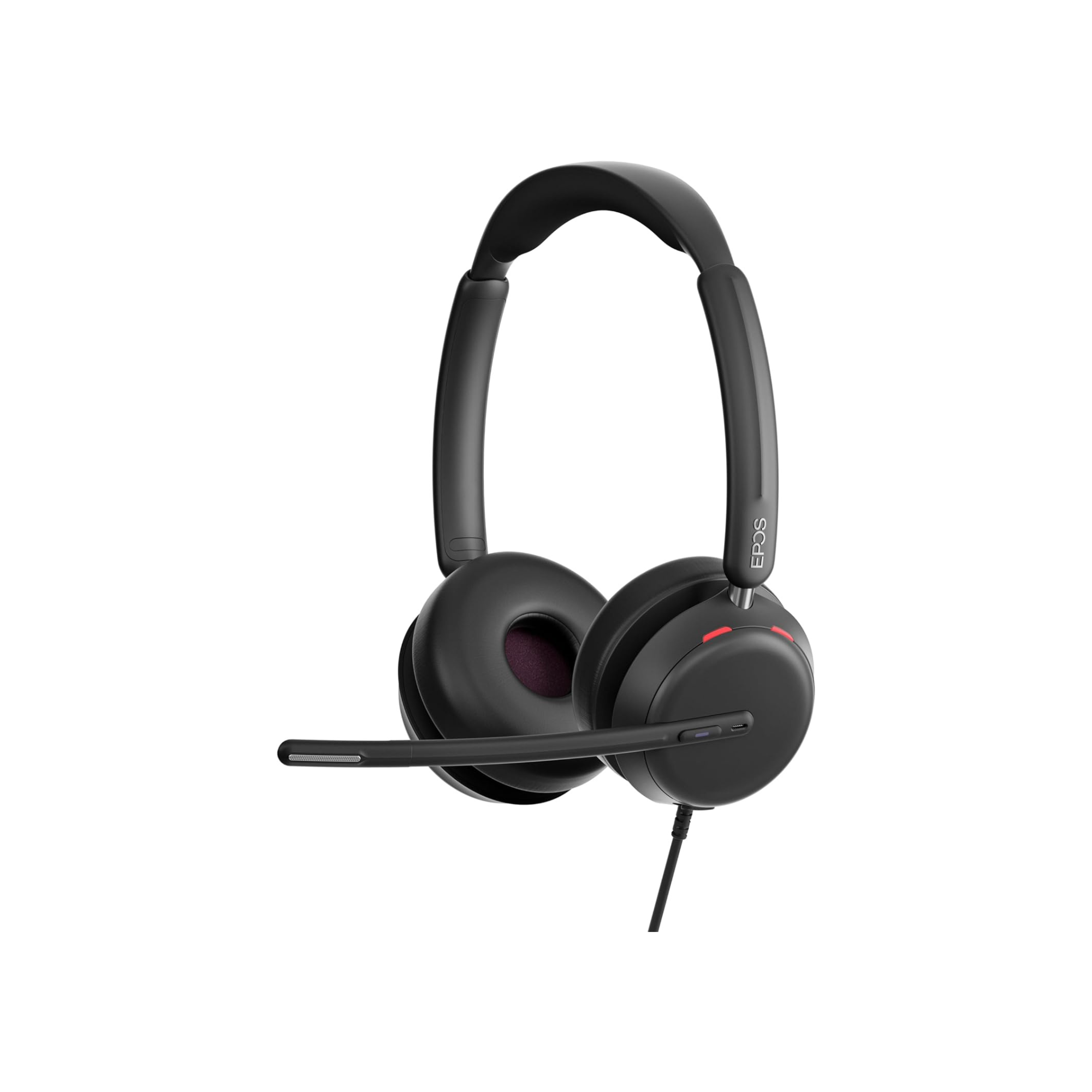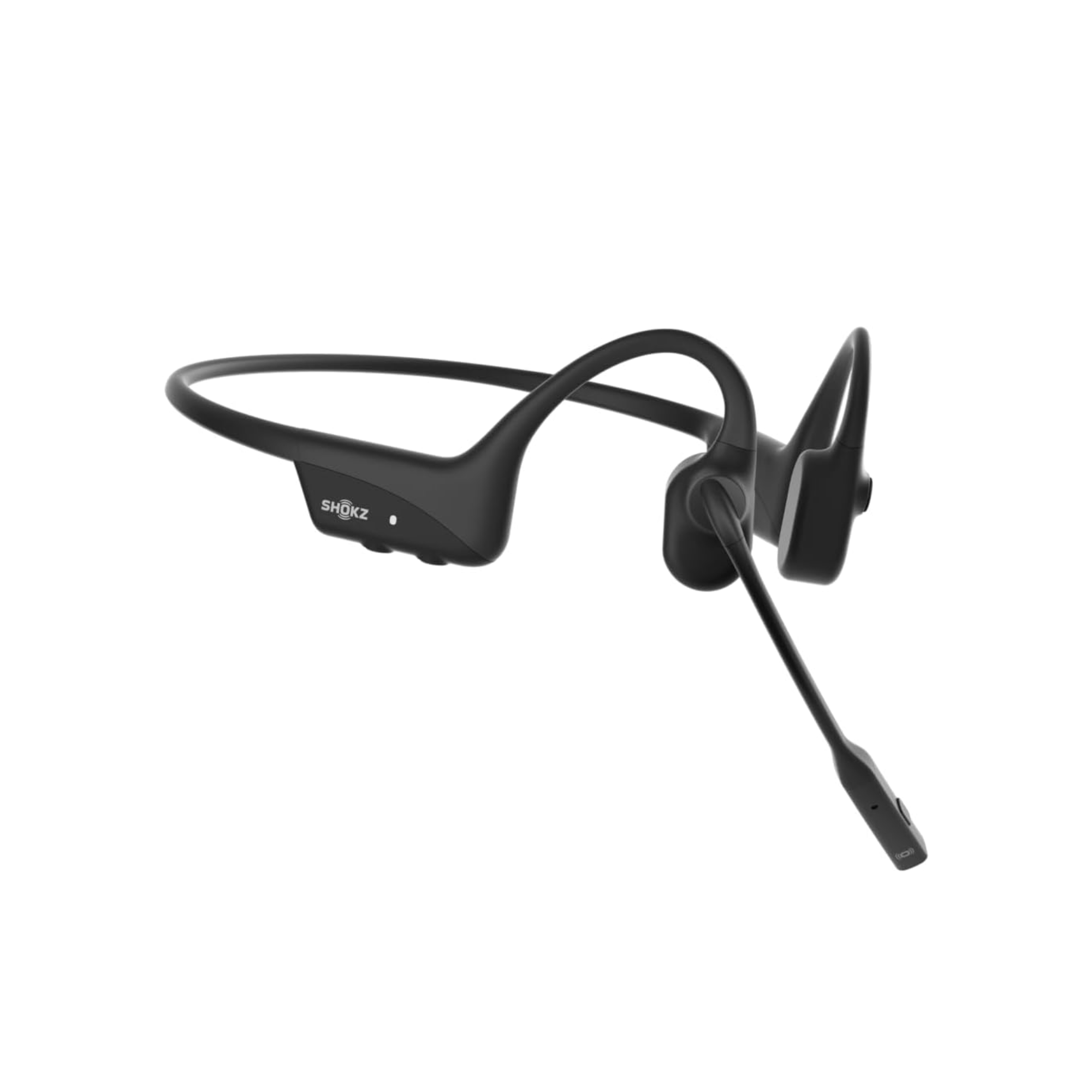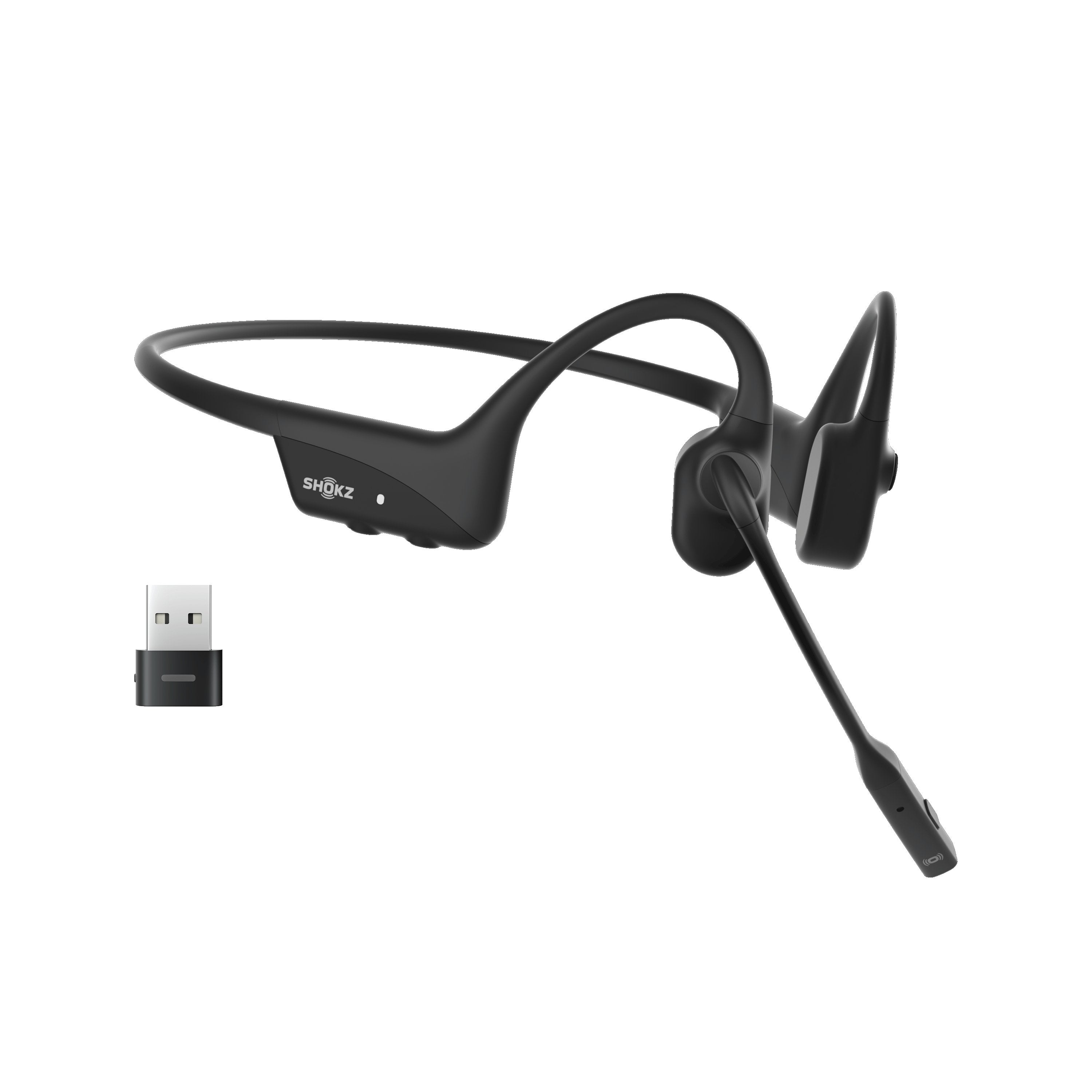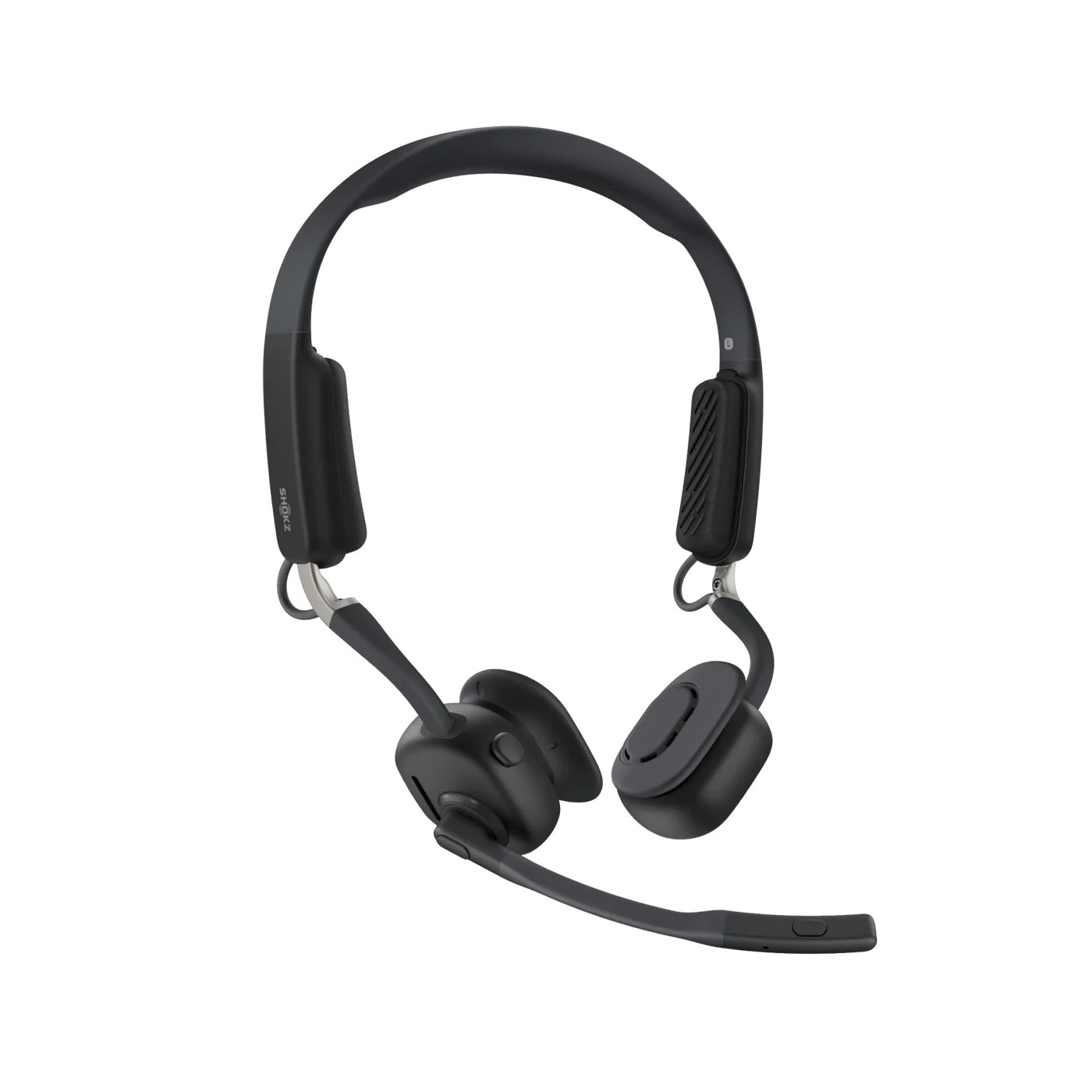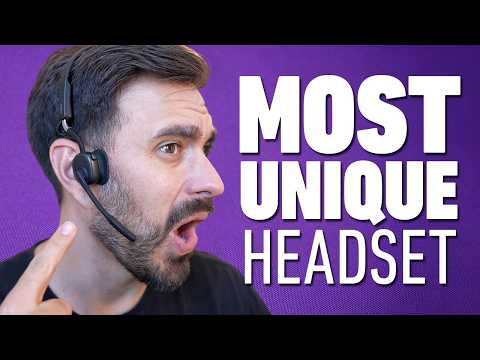Like so many forms of technology, wireless headphones and wireless headsets have been steadily evolving since inception. This evolution has tapped into warp drive in the past few years, with countless new models, and features to meet today’s communication demands.
One of the lines that seems to be a bit blurry is Bluetooth vs. DECT. Many people we talk with daily here at Headset Advisor ask for a Bluetooth headset, where what they mean to say is they’re interested in a wireless headset. Without question, the term Bluetooth is oftentimes used to describe a wireless headset.
In this blog I’ll talk about some of the similarities and differences between these two uniquely different technologies. I’ll comment on when a Bluetooth headset makes sense, and when a headset that uses DECT technology makes sense. And finally, a little bit about the technologies that have come before those we see used today.
But, before I dive into this, you might want to watch a segment of a recent Headset Advisor podcast where me and my Brothers talk about Bluetooth and DECT headsets. I realize a lot of people prefer to watch video content over reading the written word, so if you’re one of those people, then here’s the video clip you should check out.
After viewing the video, if you found it helpful or interesting, make sure to hit the like button. Also, if this is the kind of video content you can get value from, why not consider subscribing to our channel?
Increasing our subscribers helps us to continue our mission of creating helpful technology content to help introduce new, emerging products, as well as new product reviews and comparisons. So please consider subscribing.
Ok, join me as I kick around the idea of Bluetooth headsets and those that use DECT.
A quick look back

To better understand, and maybe even appreciate the wireless headsets we see and use today, I thought it would be reasonable to take a brief look in the rear view mirror.
Looking back to the mid to late 90’s, wireless headsets were in their infancy. Wireless models used in an office were typically on the expensive side, and Bluetooth headsets
were limited to those worn over the ear that had limited battery life, and sound that was average at best, and of course, no noise cancellation.
Early models of office wireless headsets used 49 MHz, 900 MHz, Digital 900 MHz and even 2.4 GHz frequencies. Each had their own unique issues which prompted the use of DECT technology. One of those issues was the fact that you’d commonly get cross
talk, meaning you could hear someone else’s conversation on your headset. Other issues included interference by other devices such as microwave ovens, wireless routers etc. All of this interference meant that your call quality suffered, and in some cases made the wireless headset unusable.
Another irritating issue was a severed connection. You could be using your headset perfectly fine one moment, and the next moment all you’d hear was static. This required you to reset the headset.
Though that wasn’t overly difficult, it happened frequently, and many people were unaware of the reset process which caused them to assume they had a defective headset. The headset wasn’t defective, but the technology used in the headset was truly the culprit.
The use of DECT solved many, if not all of these problems.
A DECT signal is reserved for voice traffic only, and that cleared up all those interference issues. Think of it like airplanes flying in crowded airspace at, say, 30,000 feet. They have to deal with others in this same space. However, if a plane rises to 40,000 feet, it’s able to fly more easily because there’s no other traffic to contend with. Similarly, when headsets moved to DECT frequency, it was like this; no competing traffic.
Bluetooth, on the other hand, has systematically improved and revised Bluetooth versions for a long time, with today’s version at 5.2.
Each time there’s an improvement made, it moves up to a higher number. Big changes allow it to move from 5 to 6 for example, while more subtle changes cause it to move from 5.2, to say, 5.4.
Like DECT, Bluetooth has come a long way.
The wireless range has steadily improved, and the sound quality has dramatically improved as well. And the battery life? That too has seen drastic improvements in terms of talk time, and reduced recharge time.
So which do you get?
It can be confusing as to which kind of headset to get, Bluetooth or DECT.
- Which is best for your situation?
- Which is better?
- Which lasts longer?
- Which gives you longer wireless range?
- Which gives you more talk/listening time?
- Which sounds better?
- Which is more reliable?
- Which gives you the ability to put more units into a crowded room?
The list of questions could continue. The point is, under which conditions should you consider a DECT wireless headset over a Bluetooth model? The information that follows should help to shed a light on this subject, and will hopefully make it easier for you to decide.
Wireless Range
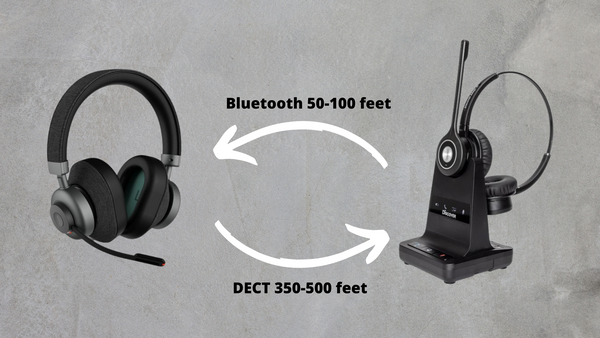
When you compare wireless range estimates for both Bluetooth headsets, and DECT wireless headsets, you will see a pretty big difference between the two.
DECT. DECT wireless headsets will give you 3,4,5 times the wireless range that you’ll get from a Bluetooth headset. Wireless range for a DECT headset can go from 150 feet, to as much as 500 feet.
In our real world tests of multiple headsets, we’ve found that if you take the stated range (the range quoted by the manufacturer), and cut it in half, that should give you a closer, true-to-life wireless estimate.
That said, DECT wireless headsets should give you between 75 feet on the low side, and up to 250 feet or so, on the high side.
Bluetooth. A Bluetooth headset is typically rated at 33 feet, up to 100 feet. If we apply our 50% rule, that has Bluetooth headsets giving you between 16 feet, and 50 feet. 16 feet would be low as I believe most Bluetooth headsets will give you at least 25-30 feet and others as much as 60-70 feet. Still, you can see that the wireless range difference between DECT and Bluetooth varies greatly.
Batteries differ
Historically, wireless headsets used with office phones had advantages over the Bluetooth headsets of the day.
Office wireless headsets had batteries that not only gave you more talk time, but most of them were replaceable by the customer. Most of the early Bluetooth models had batteries that only produced 4-5 hours of talk time, and it was common that these same batteries couldn’t be replaced. This meant that when the battery would no longer hold a charge, the headset would need to be replaced.
Though batteries in office wireless headsets have improved, Bluetooth wireless headset batteries have improved even more. It’s common to see an office wireless headset provide up to 8, or 10 hours of battery life. These days, it’s also common to see Bluetooth headsets deliver battery life of up to 28 or more hours of talk time. That’s a massive difference from the early Bluetooth headset batteries.
Something to keep in mind is that both types of headsets, DECT office wireless headsets, and Bluetooth models alike, commonly have non-replaceable batteries.
On the surface, this may be a bit surprising, because if the battery is the only thing wrong with the headset, does it make sense to have to replace it just to get a refreshed battery? In some cases, it might not. But, today with the batteries providing so much talk and listening time, there may be some sense to it.
If you consider the fact that over time a battery will provide you with less and less talk time, and when the starting point is 28 hours, or more, then it will likely take several years for the battery to reach a point where it’s unable to get you through a work day. And, by several years, it could be 5, 6 or 7 years, or even more.
By then, your needs may have changed, the technology may have changed, or the headset might be showing signs of wear and tear making it sensible to consider a replacement.
Though generalizing, I feel fairly safe in saying that if you’re looking for a wireless headset that has a more robust battery, meaning longer talk and listening times, then you’ll most certainly want to explore the many available Bluetooth headset options available today.
This isn’t to say that you can’t find DECT headsets that have a solid battery, because there are some out there.
What I am saying though is I’m seeing more and more Bluetooth models being introduced that have batteries with crazy talk and listening times such as the Orosound Tilde Pro for example. The battery that comes standard provides up to 28 hours of battery life. Just a few years ago, that would have been a rarity, but that’s not the case today.
Headset density issues
One issue that’s plagued wireless headset users over the years is the density issue. By this I mean what happens when you co-mingle a large number of wireless headsets into a small area, like an office or call center?
Interference and reduced wireless range are two of the common problems. One of the solutions that’s been used in the past is to mix into the headset population headsets that utilize different frequencies.
This allows more headsets to be used in the office space compared to the amount of headsets you can successfully use that operate off the same frequency.
Do Bluetooth or DECT headsets allow you to pack more headsets into a workspace? The answer to that is DECT. The reason is Bluetooth headsets are having to compete with other Bluetooth enabled devices that can further crowd an already busy frequency.
Not only would a Bluetooth headset have to coexist with other nearby Bluetooth headsets, but all the other devices that use Bluetooth as well. This includes things like wireless keyboards, wireless mice etc. DECT headsets don’t have this issue.
So, if you’re looking to outfit an office with wireless headsets, and you feel there will be a lot of them in a confined space, then you’ll surely want to consider a DECT headset assuming it meets your needs.
Wearing options

Most headsets today are worn over the head. They can cover one ear (monaural), or both ears (binaural). Whether you’re considering a Bluetooth or DECT model, both will provide you with the option of wearing over the head.
Some people don’t want a headset that’s worn over the head. This can be for a variety of reasons. For example:
- Don’t mess with the dew. Headsets can certainly give you a bad hair day.
- Some people say over the head wearing styles make them feel like they’re working at a drive through.
- Also high on this list are those who can’t wear things over their head because it brings on migraine headaches.
For these people, you’ll need to find a headset (Bluetooth or DECT) that’s worn over the ear, or perhaps behind the neck. Though these wearing styles are less prevalent, they can be found on both types of headsets, and offer an alternative to an over-the-head wearing style.
The type you get depends on a few things
If you work in an office, and you need to connect to a desk phone, then you’ll surely want to consider a DECT headset. It’s designed specifically for that purpose, and there are many makes and models available.
If you work in an office and you plan to not only connect to a desk phone, but to a computer as well, a DECT headset is a good headset to consider. There are a number of DECT headsets that have the ability to connect to a traditional desk phone, as well as to a computer.
If you use a Softphone rather than a typical desk phone, you have a number of choices. Among them include a wired USB headset, a wireless USB DECT headset, or a Bluetooth model. All a Softphone requires is a headset with a USB connection which opens up the door to a lot of options.
However, if you want to answer a call when away from the desk, you’ll need a headset capable of providing that functionality. Not all do, so make sure to check before entering into a purchase.
If you use a Softphone for your phone calls, and via your computer you conduct or participate in video conferencing calls, and you also want to connect to a mobile phone or tablet, then your best option is a Bluetooth headset.
The headsets being offered today are capable of connecting to multiple devices for use in the workplace, but you also have the ability to take your headset with you for use on mobile devices for work or entertainment purposes. These models are becoming increasingly popular, and their use is scaling.
Final thoughts
To me, it appears that more technology is being developed for Bluetooth headsets compared to what’s being developed for DECT models. This may be due to the fact that the use of traditional desk phones is in decline, while the use of computer based Softphones is increasing. It does make sense that the emphasis would be geared in that direction through enhanced headset features.
DECT headsets aren’t portable, where Bluetooth headsets are. If you want to use your headset when not in the office, then a Bluetooth model would make a lot of sense for you. Not only can you take it with you, but a Bluetooth headset is capable of connecting to more devices than a DECT headset.
If you do use a desk phone and having the longest wireless range is important to you, then for sure a DECT headset would make sense. Overall, you’ll get more wireless range on a DECT headset, but your needs may not align with that type of product. It’s important to know what device(s) you plan on connecting to, which will be the foundation from which to make a decision on whether to explore a Bluetooth model, or DECT.
Both types of headsets have their place today. But, it’s up to you to decide which one makes the most sense for you based on your needs.
If you decide to purchase a DECT or Bluetooth headset, and you make your purchase on our website, make sure to use coupon code BLOG in order to get a nice discount. This helps us to know that you read our blog, and it helps you to get a lower price.
Resources
If you’d like to read more about Bluetooth and DECT technologies, here are a couple of industry articles you might find useful.




